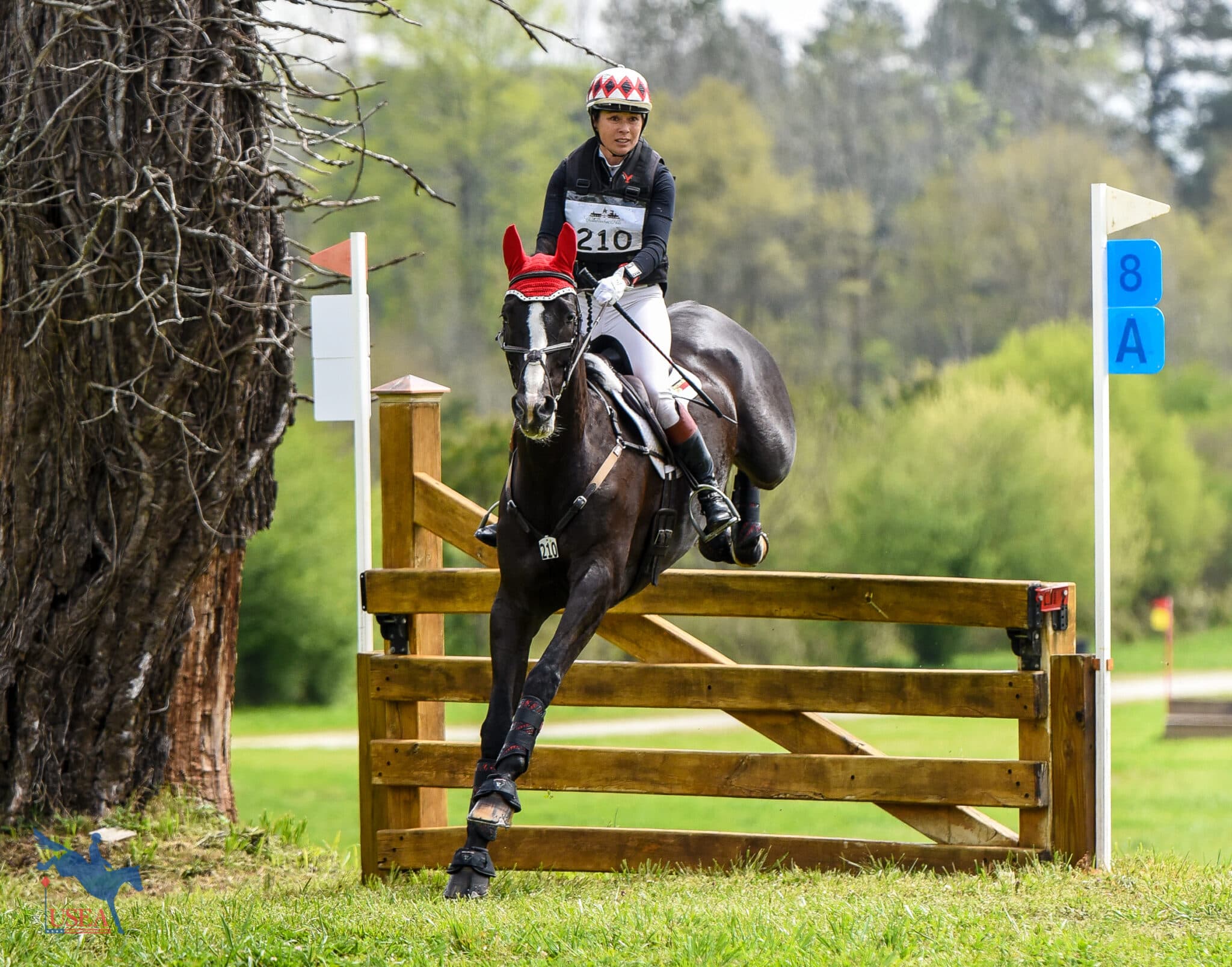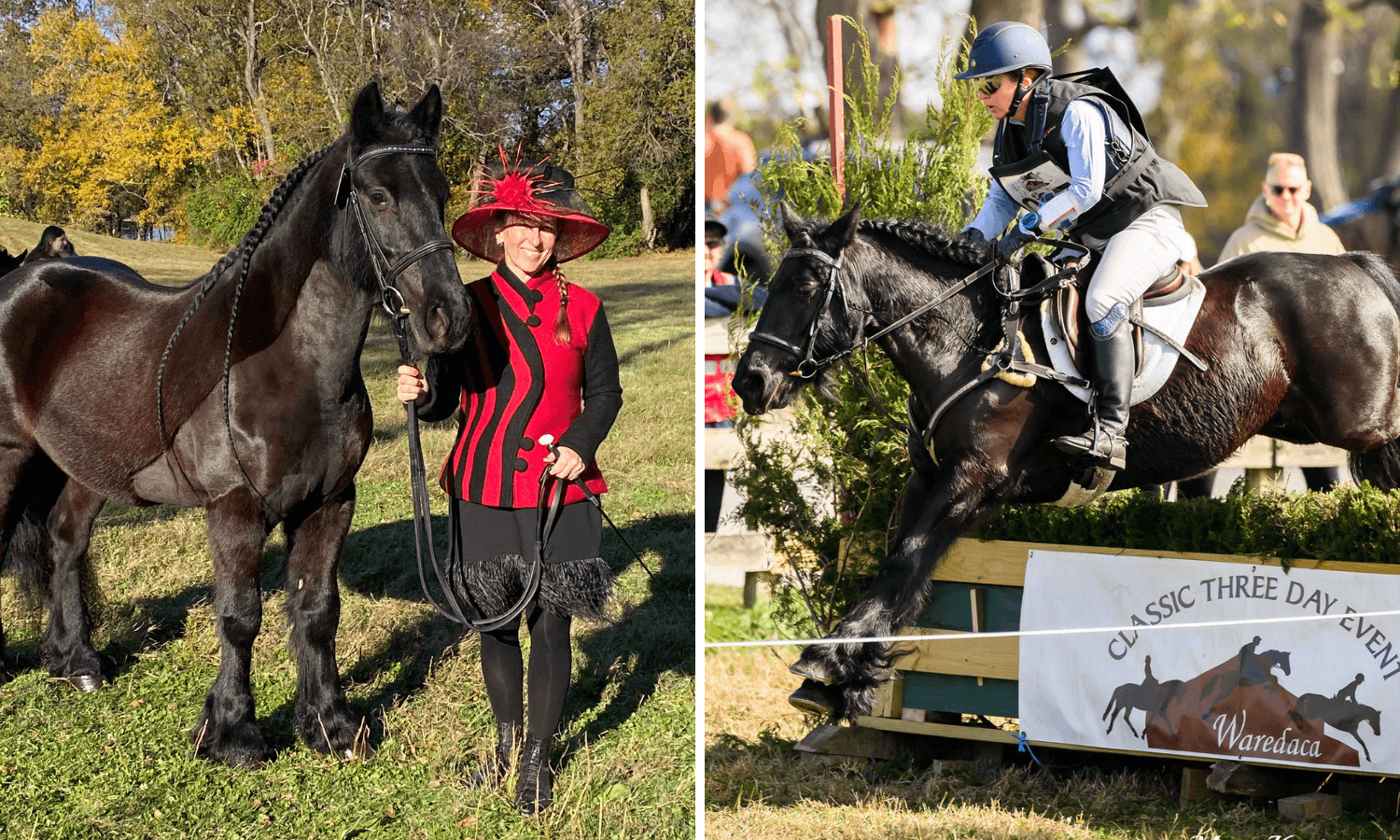Taking on a Working Student with Jennifer McFall

In this series, the United States Eventing Association (USEA) is partnering with Athletux to bring you business tips from top eventing riders and coaches. Do you have a business question you’d like to see addressed by an eventing professional? Email us at [email protected].
Working studentships are synonymous with the equestrian community. There is no experience quite like hands-on experience, especially when it comes to horses, and the knowledge can be invaluable for a young professional looking to break into the business. The benefits aren’t one-sided either, a successful working student program will attract eager individuals, hungry to learn and earn some time in the saddle. These ambitious equestrians can help relieve some of the headache of the day-to-day running and maintaining of a barn. Deciding to bring in a working student should be a big decision for a training program, so we talked to Jennifer McFall of Dragonfire Sporthorses to get some pointers for introducing a successful working student program.
For a lot of a trainers or instructors, deciding when to offer a working student position can be a struggle. Do you have enough work for them to do? Enough knowledge you’re ready to impart? For McFall, the answer to the question is simple. “Your program is ready to bring on a working student when you have time to dedicate to teaching a new person how your program works and why.” Being willing to give up some of your own time to really train this person is imperative. Your working student will be taking on a lot of responsibility for you, and it’s important that the trainer or instructor they are working for is hands-on in their training and can explain to them why their method is the best way. After all, the working student is there first and foremost to learn and grow as a horseman, so don’t bring someone in until you are ready to truly commit to teaching them.
Once you’ve decided to bring in a working student, the next decision is what to offer as compensation. “This is really a personal decision for a barn and is going to vary based on a trainer's experience level, number of horses, and location. The thing to remember here is that being a working student is an internship and does not offer payment. This is a learning opportunity for someone who is motivated and wants to work closely with someone that they admire. They will gain insights that are not available to normal students, and will possibly gain more time in the saddle if they prove their worth,” McFall said. Whether you decide to offer housing, board for a horse, or only lessons for your working students, making sure you are passing on your wisdom and knowledge of the sport is the compensation you should be focused on providing.
Now, for the “working” part of the working students. Every program will once again have differences here. The expectations may range from grooming and tack cleaning, to paddock and stall cleaning, and may even include farm maintenance, depending on the program. For McFall, the important thing to stress to your working students is the fact that this sport is one that rewards hard work above all else. “Working students should expect to get what they give. Most upper level riders have an impressive work ethic and a program they believe in that works for them. There is no magic formula to being an upper level rider, just hard work and dedication. These riders give their all every day, and the working students who join in on this mentality will work hard, no doubt, but will also grow at a faster pace than those that don’t work for a barn.”
Creating a program that really works well for you and your working students will probably take a bit of trial and error, but McFall believes that these close working relationships can be worth the challenge. “These are very fulfilling relationships, as you both contribute sweat equity in each other. You share each other’s goals, failures, and victories, and you experience the journey with your horses together.”
Those relationships can make the work days go by smoothly and more quickly, but it’s not always easy. We all know of those programs that seem to have a revolving door installed for their working students. To avoid being that barn, McFall suggests laying it all out there as early as possible. “Be as clear as possible about your expectations from day one. If someone takes a job thinking they’re going to be riding all day long they’re going to be rightly disappointed if they show up and are immediately handed a pitchfork and a wheelbarrow. Be honest about what you’ll expect from day one, and then there won’t be any resentment that builds up and causes people to leave.”
“Making a working student program really effective and fulfilling is unfortunately not going to follow a simple formula every single time for every single barn. There’s no magic formula to make it all work flawlessly, but finding the right person is truly key. You’re going to be spending a lot of time with this person, so find someone who has similar values, working habits, and sense of humor. That’s going to be the difference between success and failure," said McFall. “Beyond that, there’s no real right or wrong way, do what works best for you and your team.”
Jen McFall is a four-star event rider, trainer, and instructor from Wilton, California. Her program at Dragonfire Sporthorses is currently looking to add a working student. Interested applicants can email their resume to [email protected].















